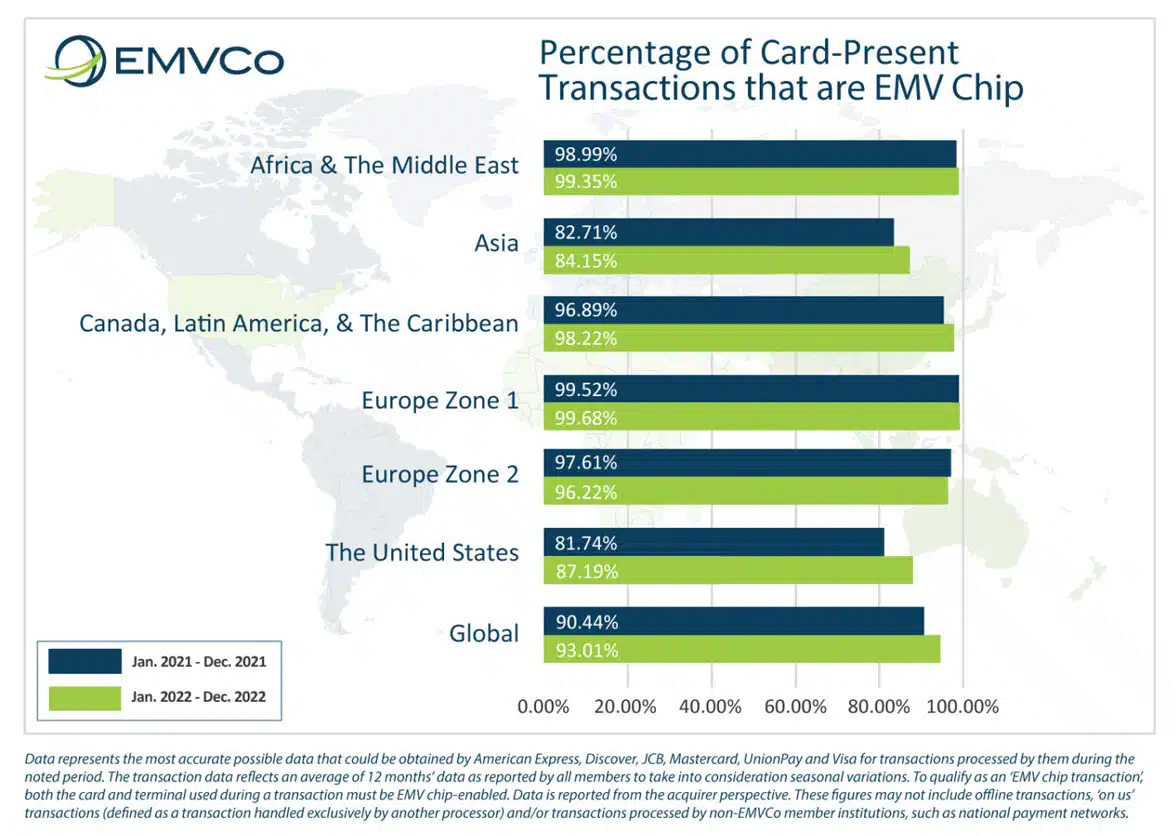
Just over 93% of card present transactions worldwide were made using EMV chip-enabled payment cards during 2022, up from 90.44% in 2021 and 88.55% in 2020, according to standards body EMVCo.
The total number of EMV payment cards in circulation also rose by 7% over the course of 2022, from just under 12bn at the end of 2021 to 12.8bn at the end of 2022, accounting for 69.25% of all cards issued worldwide, up from an average global adoption rate of just over 68% as of December 2021.
EMVCo’s figures also show that the percentage of card present transactions made using EMV chip-enabled cards was highest in Europe Zone 1 (99.68%), followed by Africa and the Middle East (99.35%), Canada, Latin America and the Caribbean (98.22%), Europe Zone 2 (96.22%), the USA (87.19%) and Asia Pacific (84.15%).
EMV chip card adoption rates were also highest in Africa and the Middle East (92.30%), Europe Zone 1 (90.64%) and Canada, Latin America and the Caribbean (88.91%), followed by Europe Zone 2 (73.10%), the USA (65.02%) and Asia Pacific (64.29%)
“As consumers continue to move away from cash and towards digital payments, EMVCo is collaborating with merchants, issuers, acquirers, payment networks, financial institutions and technology solution providers to evolve the EMV Specifications to support the next generation of payments,” EMVCo executive committee chair Joy Huang says.
“This engagement underpins our work to extend the benefits of EMV Chip technology to address emerging use-cases spanning the mass transit, automotive and IoT sectors, as well as initiatives to promote increased consistency across biometric payment cards and the use of consumer mobile devices for contactless payment acceptance.”
EMVCo reported in June 2022 that more than 90% of card present payments worldwide were made using EMV chip cards during 2021.
Next: Visit the NFCW Expo to find new suppliers and solutions